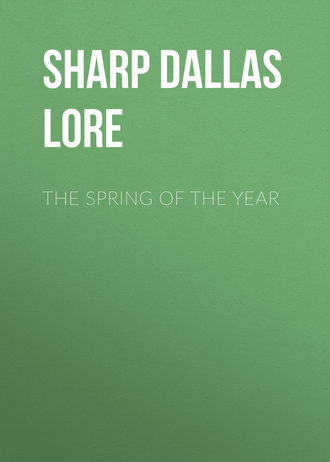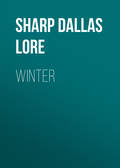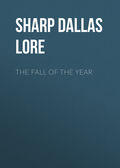
Sharp Dallas Lore
The Spring of the Year
Memories, of course, the animals surely have; but little or no power to use them. The dog will sometimes seem to cherish a grudge; so will the elephant. Some one injures or wrongs him, and the huge beast harbors the memory, broods it, and awaits his opportunity for revenge. Yet the records of these cases usually show that the creature had been living with the object of his hatred – his keeper, perhaps – and that the memory goes no farther back than the present moment, than the sight of the hated one.
At my railroad station I frequently see a yoke of great sleepy, bald-faced oxen, that look as much alike as two blackbirds. Their driver knows them apart; but as they stand there, bound to one another by the heavy bar across their foreheads, it would puzzle anybody else to tell Buck from Berry. But not if he approach them wearing an overcoat. At sight of me in an overcoat the off ox will snort and back and thrash about in terror, twisting the head of his yoke-fellow, nearly breaking his neck, and trampling him miserably. But the nigh ox is used to it. He chews and blinks away placidly, keeps his feet the best he can, and doesn’t try to understand at all why greatcoats should so frighten his cud-chewing brother. I will drop off my coat and go up immediately to smooth the muzzles of both oxen, now blinking sleepily while the lumber is being loaded on.
Years ago, the driver told me, the off ox was badly frightened by a big woolly coat, the sight or smell of which probably suggested to the creature some natural enemy, a panther, perhaps, or a bear. The memory remained, but beyond recall except in the presence of its first cause, the greatcoat.
To us there are such things as terror and death, but not to the lower animals except momentarily. We are clutched by terror even as the junco was clutched in my goblin hand. When the mighty fingers open, we zigzag, dazed, from the danger; but fall to planning before the tremors of the fright have ceased. Upon the crumbled, smoking heap of San Francisco a second splendid city has arisen and shall ever rise. Terror can kill the living, but it cannot hinder them from forgetting, or prevent them from hoping, or, for more than an instant, stop them from doing. Such is the law of life – the law of heaven, of my pastures, of the little junco, of myself. Life, Law, and Matter are all of one piece. The horse in my stable, the robin, the toad, the beetle, the vine in my garden, the garden itself, and I together with them all, come out of the same divine dust; we all breathe the same divine breath; we have our beings under the same divine laws; only they do not know that the law, the breath, and the dust are divine. If, with all that I know of fear, I can so readily forget it, and can so constantly feel the hope and the joy of life within me, how soon for them, my lowly fellow mortals, must vanish all sight of fear, all memory of pain! And how abiding with them, how compelling, the necessity to live! And in their unquestioning obedience, what joy!
The face of the fields is as changeful as the face of a child. Every passing wind, every shifting cloud, every calling bird, every baying hound, every shape, shadow, fragrance, sound, and tremor, are reflected there. But if time and experience and pain come, they pass utterly away; for the face of the fields does not grow old or wise or seamed with pain. It is always the face of a child, – asleep in winter, awake in spring and summer, – a face of life and health always, as much in the falling leaf as in the opening bud, as much under the covers of the snow as in the greensward of the spring, as much in the wild, fierce joy of fox and hound as they course the turning, tangling paths of the woodlands in their fateful race as in the song of brook and bird on a joyous April morning.
CHAPTER IX
THE BUZZARD OF THE BEAR SWAMP
No, I do not believe that any one of you ever went into a swamp to find a turkey buzzard’s nest. Still, if you had been born on the edge of a great swamp, as I was, and if the great-winged buzzards had been soaring, soaring up in your sky, as all through my boyhood they were soaring up in mine, then why should you not have gone some time into the swamp to see where they make their nests – these strange cloud-winged creatures?
Boys are boys, and girls are girls, the world over; and I am pretty sure that little Jack Horner and myself were not the only two boys in all the world to do great and wonderful deeds. Any boy with a love for birds and a longing for the deep woods, living close to the edge of the Bear Swamp, would have searched out that buzzard’s nest.
Although I was born within the shadows of the Bear Swamp, close enough to smell the magnolias along its margin, and lived my first ten years only a little farther off, yet it was not until after twice ten years of absence that I stood again within sight of it, ready for the first time to cross its dark borders and find the buzzard’s nest.
Now here at last I found myself, looking down over the largest, least trod, deepest-tangled swamp in southern New Jersey – wide, gloomy, silent, and to me, – for I still thought of it as I used to when a child, – to me, a mysterious realm of black streams, hollow trees, animal trails, and haunting shapes, presided over by this great bird, the turkey buzzard.
For he was never mere bird to me, but some kind of spirit. He stood to me for what was far off, mysterious, secret, and unapproachable in the deep, dark swamp; and, in the sky, so wide were his wings, so majestic the sweep of his flight, he had always stirred me, caused me to hold my breath and wish myself to fly.
No other bird did I so much miss from my New England skies when I came here to live. Only the other day, standing in the heart of Boston, I glanced up and saw, sailing at a far height against the billowy clouds, an aeroplane; and what should I think of but the flight of the vulture, so like the steady wings of the great bird seemed the steady wings of this great monoplane far off against the sky.
And so you begin to understand why I had come back after so many years to the swamp, and why I wanted to see the nest of this strange bird that had been flying, flying forever in my imagination and in my sky. But my good uncle, whom I was visiting, when I mentioned my quest, merely exclaimed, “What in thunderation!”
You will find a good many uncles and other folk who won’t understand a good many things that you want to do. Never mind. If you want to see a buzzard’s nest, let all your relations exclaim while you go quietly off alone and see it.
I wanted to find a buzzard’s nest – the nest of the Bear Swamp buzzard; and here at last I stood; and yonder on the clouds, a mere mote in the distance, floated the bird. It was coming toward me over the wide reach of the swamp.
Silent, inscrutable, and alien lay the swamp, and untouched by human hands. Over it spread a quiet and reserve as real as twilight. Like a mask it was worn, and was slipped on, I know, at my approach. I could feel the silent spirit of the place drawing back away from me. But I should have at least a guide to lead me through the shadow land, for out of the lower living green towered a line of limbless stubs, like a line of telegraph-poles, their bleached bones gleaming white, or showing dark and gaunt against the horizon, and marking for me a path far out across the swamp. Besides, here came the buzzard winding slowly down the clouds. Soon its spiral changed to a long pendulum-swing, till just above the skeleton trees the great bird wheeled and, bracing itself with its flapping wings, dropped heavily upon one of the headless tree-trunks.
It had come leisurely, yet I could see that it had come with a directness and purpose that was unmistakable and also meaningful. It had discovered me in the distance, and, while still invisible to my eyes, had started down to perch upon that giant stub in order to watch me. It was suspicious, and had come to watch me, because somewhere beneath its perch, I felt sure, lay a hollow log, the creature’s den, holding its two eggs or its young. A buzzard has something like a soul.
Marking the direction of the stub, and its probable distance, I waded into the deep underbrush, the buzzard perched against the sky for my guide, and, for my quest, the stump or hollow log that held the creature’s nest.
The rank ferns and ropy vines swallowed me up, and shut out at times even the sight of the sky and the buzzard. It was not until half an hour’s struggle that, climbing a pine-crested swell in the low bottom, I sighted the bird again. It had not moved.
I was now in the real swamp, the old uncut forest. It was a land of tree giants: huge tulip poplar and swamp white oak, so old that they had become solitary, their comrades having fallen one by one; while some of them, unable to loose their grip upon the soil, which had widened and tightened through centuries, were still standing, though long since dead. It was upon one of these that the buzzard sat humped.
Directly in my path stood an ancient swamp white oak, the greatest tree, I think, that I have ever seen. It was not the highest, nor the largest round, perhaps, but in years and looks the greatest. Hoary, hollow, and broken-limbed, his huge bole seemed encircled with the centuries.
“For it had bene an auncient tree,
Sacred with many a mysteree.”
Above him to twice his height loomed a tulip poplar, clean-boled for thirty feet and in the top all green and gold with blossoms. It was a resplendent thing beside the oak, yet how unmistakably the gnarled old monarch wore the crown! His girth more than balanced the poplar’s greater height; and, as for blossoms, he had his tiny-flowered catkins; but nature knows the beauty of strength and inward majesty, and has pinned no boutonnière upon the oak.
My buzzard now was hardly more than half a mile away, and plainly seen through the rifts in the lofty timbered roof above me. As I was nearing the top of a large fallen pine that lay in my course, I was startled by the burrh! burrh! burrh! of three partridges taking wing just beyond, near the foot of the tree. Their exploding flight seemed all the more like a real explosion when three little clouds of dust-smoke rose out of the low, wet bottom of the swamp and drifted up against the green.
Then I saw an interesting sight. The pine, in its fall, had snatched with its wide-reaching, multitudinous roots at the shallow bottom and torn out a giant fistful of earth, leaving a hole about two feet deep and more than a dozen feet wide. The sand thus lifted into the air had gradually washed down into a mound on each side of the butt, where it lay high and dry above the level of the wet swamp. This the swamp birds had turned into a great dust-bath. It was in constant use, evidently. Not a spear of grass had sprouted in it, and all over it were pits and craters of various sizes, showing that not only the partridges but also the quail and such small things as the warblers bathed here, – though I can’t recall ever having seen a warbler bathe in the dust. A dry bath in the swamp was something of a luxury, evidently. I wonder if the buzzards used it?
I went forward cautiously now, and expectantly, for I was close enough to see the white beak and red wattled neck of my buzzard guide. The buzzard saw me, too, and began to twist its head and to twitch its wing-tips nervously. Then the long, black wings began to open, as you would open a two-foot rule, and, with a heavy lurch that left the dead stub rocking, the bird dropped and was soon soaring high up in the blue.
This was the locality of the nest; now where should I find it? Evidently I was to have no further help from the old bird. The underbrush was so thick that I could hardly see farther than my nose. A half-rotten tree-trunk lay near, the top end resting across the backs of several saplings that it had borne down in its fall. I crept up on this for a look around, and almost tumbled off at finding myself staring directly into the dark, cavernous hollow of an immense log lying on a slight rise of ground a few feet ahead of me.
It was a yawning hole, which at a glance I knew belonged to the buzzard. The log, a mere shell of a mighty white oak, had been girdled and felled with an axe, by coon-hunters probably, and still lay with one side resting upon the rim of the stump. As I stood looking, something white stirred vaguely in the hole and disappeared.
Leaping from my perch, I scrambled forward to the mouth of the hollow log and was greeted with hisses from far back in the dark. Then came a thumping of bare feet, more hisses, and a sound of snapping beaks. I had found my buzzard’s nest!
Hardly that, either, for there was not a feather, stick, or chip as evidence of a nest. The eggs had been laid upon the sloping cavern floor, and in the course of their incubation must have rolled clear down to the opposite end, where the opening was so narrow that the buzzard could not have brooded them until she had rolled them back. The wonder is that they had ever hatched.
But they had, and what they hatched was another wonder. Nature never intended a young buzzard for any eye but his mother’s, and she hates the sight of him. Elsewhere I have told of a buzzard that devoured her eggs at the approach of an enemy, so delicately balanced are her unnamable appetites and her maternal affections!
The two strange nestlings in the log must have been three weeks old, I should say, the larger weighing about four pounds. They were covered, as young owls are, with deep snow-white down, out of which protruded their black scaly, snaky legs. They stood braced on these long black legs, their receding heads drawn back, shoulders thrust forward, and bodies humped between the featherless wings like challenging tom-cats.
In order to examine them, I crawled into the den – not a difficult act, for the opening measured four feet and a half across at the mouth. The air was musty inside, yet surprisingly free from odor. The floor was absolutely clean, but on the top and sides of the cavity was a thick coating of live mosquitoes, most of them gorged, hanging like a red-beaded tapestry over the walls.
I had taken pains that the flying buzzard should not see me enter, for I hoped she would descend to look after her young. But she would take no chances with herself. I sat near the mouth of the hollow, where I could catch the fresh breeze that pulled across the end, and where I had a view of a far-away bit of sky. Suddenly, across this field of blue, there swept a meteor of black – the buzzard! and evidently in that instant of passage, at a distance certainly of half a mile, she spied me in the log.
I waited more than an hour longer, and when I tumbled out with a dozen kinds of cramps, the unworried mother was soaring serenely far up in the clear, cool sky.
CHAPTER X
A CHAPTER OF THINGS TO HEAR THIS SPRING
I
The frogs! You can have no spring until you hear the frogs. The first shrill notes, heard before the ice is fairly out of the marshes, will be the waking call of the hylas, the tiny tree-frogs that later on in the summer you will find in the woods. Then, as the spring advances and this silvery sleigh-bell jingle tinkles faster, other voices will join in – the soft croak of the spotted leopard frogs, the still softer melancholy quaver of the common toad, and away down at the end of the scale the deep, solemn bass of the great bullfrog saying, “Go round! Better go round!”
II

You must hear, besides the first spring notes of the bluebird and the robin, four bird songs this spring. First (1) the song of the wood thrush or the hermit thrush, whichever one lives in your neighborhood. No words can describe the purity, the peacefulness, the spiritual quality of the wood thrush’s simple “Come to me.” It is the voice of the tender twilight, the voice of the tranquil forest, speaking to you. After the thrush (2) the brown thrasher, our finest, most gifted songster, as great a singer, I think (and I have often heard them both), as the Southern mockingbird. Then (3) the operatic catbird. She sits lower down among the bushes than the brown thrasher, as if she knew that, compared with him, she must take a back seat; but for variety of notes and length of song, she has few rivals. I say she, when really I ought to say he, for it is the males of most birds that sing, but the catbird seems so long and slender, so dainty and feminine, that I think of this singer as of some exquisite operatic singer in a woman’s rôle. Then (4) the bobolink; for his song is just like Bryant’s bubbling poem, only better! Go to the meadows in June and listen as he comes lilting and singing over your head.
III
There are some birds that cannot sing: the belted kingfisher, for instance; he can only rattle. You must hear him rattle. You can do as well yourself if you will shake a “pair of bones” or heave an anchor and let the chain run fast through the hawse-hole. You then must hear the downy woodpecker doing his rattling rat-ta-tat-tat-tat-tat (across the page and back again), as fast as rat-ta-tat can tat. How he makes the old dead limb or fence-post rattle as he drums upon it with his chisel bill. He can be heard half a mile around.
Then high-hole, the flicker (or golden-winged woodpecker), you must hear him yell, Up-up-up-up-up up-up-up-up-up-up, – a ringing, rolling, rapid kind of yodel that echoes over the spring fields.
IV
You must hear the nighthawk and the whip-poor-will. Both birds are to be heard at twilight, and the whip-poor-will far into the night. At the very break of dawn is also a good time to listen to them.
At dusk you will see (I have seen him from the city roofs in Boston) a bird about the size of a pigeon mounting up into the sky by short flights, crying peent, until far over your head the creature will suddenly turn and on half-closed wings dive headlong toward the earth, when, just before hitting the ground, upward he swoops, at the same instant making a weird booming sound, a kind of hollow groan with his wings, as the wind rushes through their large feathers. This diver through the dim ocean of air is the nighthawk. Let one of the birds dive close to your head on a lonely dusky road, and your hair will try to jump out from under your hat.
The whip-poor-will’s cry you all know. When you hear one this spring, go out into the twilight and watch for him. See him spring into the air, like a strange shadow, for flies; count his whip-poor-wills (he may call it more than a hundred times in as many seconds!). But hear a circle of the birds, if possible, calling through the darkness of a wood all around you!
V
There is one strange bird song that is half song and half dance that perhaps most of you may never be able to hear and see; but as it is worth going miles to hear, and nights of watching to witness, I am going to set it here as one of your outdoor tasks or feats: you must hear the mating song of the woodcock. I have described the song and the dance in “Roof and Meadow,” in the chapter called “One Flew East and One Flew West.” Mr. Bradford Torrey has an account of it in his “Clerk of the Woods,” in the chapter named “Woodcock Vespers.” To hear the song is a rare experience for the habitual watcher in the woods, but one that you might have the first April evening that you are abroad.
Go down to your nearest meadow – a meadow near a swampy piece of woods is best – and here, along the bank of the meadow stream, wait in the chilly twilight for the speank, speank, or the peent, peent, from the grass – the signal that the song is about to begin.
VI
One of the dreadful – positively dreadful – sounds of the late spring that I hear day in and day out is the gobbling, strangling, ghastly cries of young crows feeding. You will surely think something is being murdered. The crying of a hungry baby is musical in comparison. But it is a good sound to hear, for it reminds one of the babes in the woods – that a new generation of birds is being brought through from babyhood to gladden the world. It is a tender sound! The year is still young.
VII
You should hear the hum of the honey-bees on a fresh May day in an apple tree that is just coming into perfect bloom. The enchanting loveless of the pink and white world of blossoms is enough to make one forget to listen to the hum-hum-hum-humming-ing-ing-ing-ing of the excited bees. But hear their myriad wings, fanning the perfume into the air and filling the sunshine with the music of work. The whir, the hum of labor – of a busy factory, of a great steamship dock – is always music to those who know the blessedness of work; but it takes that knowledge, and a good deal of imagination besides, to hear the music in it. Not so with the bees. The season, the day, the colors, and perfumes – they are the song; the wings are only the million-stringed æolian upon which the song is played.
VIII
You should hear the grass grow. What! I repeat, you should hear the grass grow. I have a friend, a sound and sensible man, but a lover of the out-of-doors, who says he can hear it grow. But perhaps it is the soft stir of the working earthworms that he hears. Try it. Go out alone one of these April nights; select a green pasture with a slope to the south, at least a mile from any house, or railroad; lay your ear flat upon the grass, listen without a move for ten minutes. You hear something – or do you feel it? Is it the reaching up of the grass? is it the stir of the earthworms? is it the pulse of the throbbing universe? or is it your own throbbing pulse? It is all of these, I think; call it the heart of the grass beating in every tiny living blade, if you wish to. You should listen to hear the grass grow.
IX
The fires have gone out on the open hearth. Listen early in the morning and toward evening for the rumbling, the small, muffled thunder, of the chimney swallows, as they come down from the open sky on their wonderful wings. Don’t be frightened. It isn’t Santa Claus this time of year; nor is it the Old Nick! The smothered thunder is caused by the rapid beating of the swallows’ wings on the air in the narrow chimney-flue, as the birds settle down from the top of the chimney and hover over their nests. Stick your head into the fireplace and look up! Don’t smoke the precious lodgers out, no matter how much racket they make.
X
Hurry out while the last drops of your first May thunder-shower are still falling and listen to the robins singing from the tops of the trees. Their liquid songs are as fresh as the shower, as if the raindrops in falling were running down from the trees in song – as indeed they are in the overflowing trout-brook. Go out and listen, and write a better poem than this one that I wrote the other afternoon when listening to the birds in our first spring shower: —
The warm rain drops aslant the sun
And in the rain the robins sing;
Across the creek in twos and troops,
The hawking swifts and swallows wing.
The air is sweet with apple bloom,
And sweet the laid dust down the lane,
The meadow’s marge of calamus,
And sweet the robins in the rain.
O greening time of bloom and song!
O fragrant days of tender pain!
The wet, the warm, the sweet young days
With robins singing in the rain.







